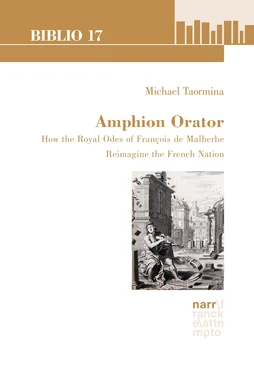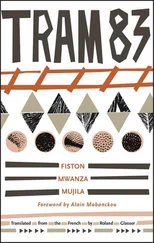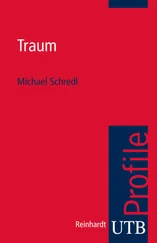Michael Taormina - Amphion Orator
Здесь есть возможность читать онлайн «Michael Taormina - Amphion Orator» — ознакомительный отрывок электронной книги совершенно бесплатно, а после прочтения отрывка купить полную версию. В некоторых случаях можно слушать аудио, скачать через торрент в формате fb2 и присутствует краткое содержание. Жанр: unrecognised, на английском языке. Описание произведения, (предисловие) а так же отзывы посетителей доступны на портале библиотеки ЛибКат.
- Название:Amphion Orator
- Автор:
- Жанр:
- Год:неизвестен
- ISBN:нет данных
- Рейтинг книги:4 / 5. Голосов: 1
-
Избранное:Добавить в избранное
- Отзывы:
-
Ваша оценка:
- 80
- 1
- 2
- 3
- 4
- 5
Amphion Orator: краткое содержание, описание и аннотация
Предлагаем к чтению аннотацию, описание, краткое содержание или предисловие (зависит от того, что написал сам автор книги «Amphion Orator»). Если вы не нашли необходимую информацию о книге — напишите в комментариях, мы постараемся отыскать её.
Amphion Orator — читать онлайн ознакомительный отрывок
Ниже представлен текст книги, разбитый по страницам. Система сохранения места последней прочитанной страницы, позволяет с удобством читать онлайн бесплатно книгу «Amphion Orator», без необходимости каждый раз заново искать на чём Вы остановились. Поставьте закладку, и сможете в любой момент перейти на страницу, на которой закончили чтение.
Интервал:
Закладка:
political eloquencegenera dicendi (kinds of speaking)The issue, therefore, is not whether a French nationnation existed in the early modern period, but whether a sufficient number of people believed that it did and behaved as if it did.6 We know that it was not a pure fiction because material traces of the conditions of its existence persist, but there were indeed phantasmic components that made it, in Benedict Anderson’s phrase, an imagined community. One of the primary tasks of this book has been to historicize and to analyze the myths and images contained in Malherbe’s royal odes which would have contributed to the reimagining of the national communitynationnational community—if contemporary readers had been up to the task and bought into them. I take no firm position on whether they did, although I suspect that most did not. By all appearances Malherbe’s vision for the French nationnation was overtaken by events and swept aside for other more compelling imagined communities.
If the particulars of medieval French nationnationhood constitute the symbolic strata against which to compare and to appreciate the imagined community of the royal odes, it is because Malherbe was uprooting and planting in the same medieval soil as his sixteenth-century predecessors. The significant social and political developments that separate Malherbe from his Renaissance counterparts are what account for the noticeable differences in their political and esthetic commitments. One must remember that Malherbe was writing from the other side of the religious warsreligious wars. Henri IV had managed to tamp down the violence and to win the peace by 1600. The first royal odes were thus composed not only against the backdrop of the crisis of nationnational identity, but also in the afterglow of the patriotic feelingpatriotismpatriotic feeling, fervor, sentiment that surged through France in the 1580s and 90s, a phenomenon that echoes previous waves of nationnational pride, notably Bouvines (1214) and Orleans (1429). In addition, the support that Henri IV enjoyed among noble elites and the people, and the profound lassitude with the destruction caused by civil conflict, created a reservoir of goodwill and fostered a general spirit of reconciliation. Pockets of resistance and mistrust were the exception that proved the rule. Therefore, in their inception, the royal odes partake of this eagerness to bury the past and to move forward, striving to erect a linguistic monumentmonuments whose universal eloquenceeloquence will move, with persuasive arguments and powerful emotionemotions, the hearts and minds of French subjects of every ideological stripe to rejoin the nationnational fabric. Malherbe’s royal odes reflect the blurring of the boundaries between rhetoric and poetry, or between literature and propaganda, that occurred during the Wars of Religion, and they echo arguments, opinions, affects, and images found in the polemical pamphlet literature that arose to spread the ideology and propaganda of the competing religious factions.7 An important difference between these pamphlets and the odes, however, is that the latter are less concerned with an ontology of Frenchness. Rather, what they seek to instill is an ethical commitment to king and commonwealthcommonwealth. While they crucially offer up alternative imagesimage of the king, the monarchypolitymonarchy, and the nationnation, it is less a question of representation than persuasion.ethosēthosproof The nationnational ethosethos they ethosmegalopsychosmagnanimitypropose for the nationnation is not the result of blood, soil, or climate, but is the product of consent and choice. Their figural language is not about resisting a collective identity or critiquing the claims of a centralized monarchy. On the contrary, it seeks to inspire subjects with the sense of belonging to a new national communitynationnational community, with a sense of loyalty to the crown and to fellow subjects, and with hatred for enemies of the state. The Other in the royal odes is less an object of fear than of hatred and anger—it is an enemy, domestic or foreign, that must be expelled from the body politicbody politic for the return of the Golden AgeGolden Age to begin. The royal odes are thus about closing ranks, consolidating gains, and questhero cyclequesting for greatness. If in the sixteenth century, as Timothy Hampton notes, generic and rhetorical multiplicity is the imaginative response to “the breakdown of community” (Hampton ix, 28-29), the royal odes respond in contrary fashion with an elaborate and intricate unity—a “higher, hidden order,” to borrow the phrase from David Lee RubinRubin, David Lee, one of Malherbe’s most perceptive readers. The rhetorical and esthetic unity of the odes prefigures, if only in the symbolic order, the national unitynationnational unity they seek to bring about.
virtueintellectualphronēsisSuch are the reasons why the arguments of this book do not constitute a chapter in the deconstruction of French nationnationhood. Rather than critique Malherbe’s ideology of the nationnation, or tease out its puzzles and contradictions, I have tried to assemble all the threads of the imaginary nationnational tapestry composed by the royal odes and to describe the grand tableau without losing sight of the details and their proper contexts. It follows that the construction of the French nationnation by the royal odes has been analyzed using their own terms for the sake of demonstrating the sequence’s amazing unity. The primary intention has been to share with contemporary readers my sincere and profound admiration for Malherbe’s poetic artistry. In the process, however, I believe this book has uncovered surprising and significant connections to the most contested notions of early modern France (i.e. nationnational and religious identity, nobiliary identity, absolutismabsolutism, female kingship, literary autonomy, etc.), which receive novel and, in some cases, prescient formulations in the royal odes. The highest compliment this book could be paid would be for its historical and rhetorical analyses to inform future critiques of French nationnational ideology.
Introduction
great soulmagnanimityFrançois de Malherbe (1555-1628) is one of France’s greatest poets. Between 1600 and 1627, he published a series of encomiasticencomiumencomiastic poetry odes whose grandstylegrandeur and complexity are unmatched in the history of French literature. Although Malherbe is arguably the most influential lyriclyric poetry poet of seventeenth-century France, his legacy is puzzling for a twenty-first-century reader. A poetic doctrine bears his name, yet he never wrote it down. He is renowned for his strict rules of versification, yet one of his mentors, Du PerronDu Perron, a lesser poet, more skillfully composes meters.1 He supposedly rejected far-fetched metaphormetaphors, dense and convoluted syntax, and obscure mythological allusions, yet these pervade his poetry. The royal odes have been praised for their harmony, logic, and majesty, and disparaged for their disorder, formalism, and dullness. Their loftiest ambition is to forge a new nationnation after the Wars of Religion; yet Malherbe allegedly scoffed at poets in private conversation, famously ridiculing himself and his peers as “excellent arrangers of syllables” (Racan, Malherbe 34). His celebrated translation of the letters of SenecaSeneca between 1601 and 1605 reflects the shift in French eloquenceeloquence toward the “classical compromise,” which balances judgment and invention, citation and imitation, argument and style.2 Yet Malherbe’s mature poetic style embodies the CiceroCiceronian AtticismCiceroAtticism described by Du VairDu Vair in De l’éloquence françoise [ On French Eloquence ] (1594), albeit tinged with the plainstyleplainer variety of HellenisticstyleHellenistic grandstylegrandeur that was flourishing in contemporary sacredeloquencesacred oratory oratory. Malherbe was a provincial noble educated for a career in the magistracy, yet his odes aspire to achieve a universal eloquenceeloquence that transcends the idioms of caste and region and surmounts the vicissitudes of history.
Читать дальшеИнтервал:
Закладка:
Похожие книги на «Amphion Orator»
Представляем Вашему вниманию похожие книги на «Amphion Orator» списком для выбора. Мы отобрали схожую по названию и смыслу литературу в надежде предоставить читателям больше вариантов отыскать новые, интересные, ещё непрочитанные произведения.
Обсуждение, отзывы о книге «Amphion Orator» и просто собственные мнения читателей. Оставьте ваши комментарии, напишите, что Вы думаете о произведении, его смысле или главных героях. Укажите что конкретно понравилось, а что нет, и почему Вы так считаете.












